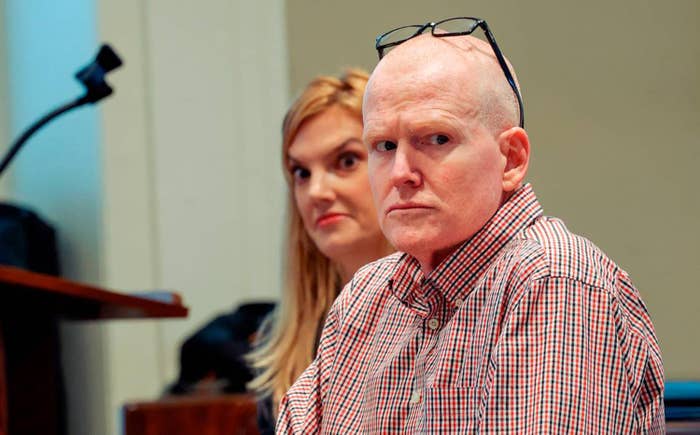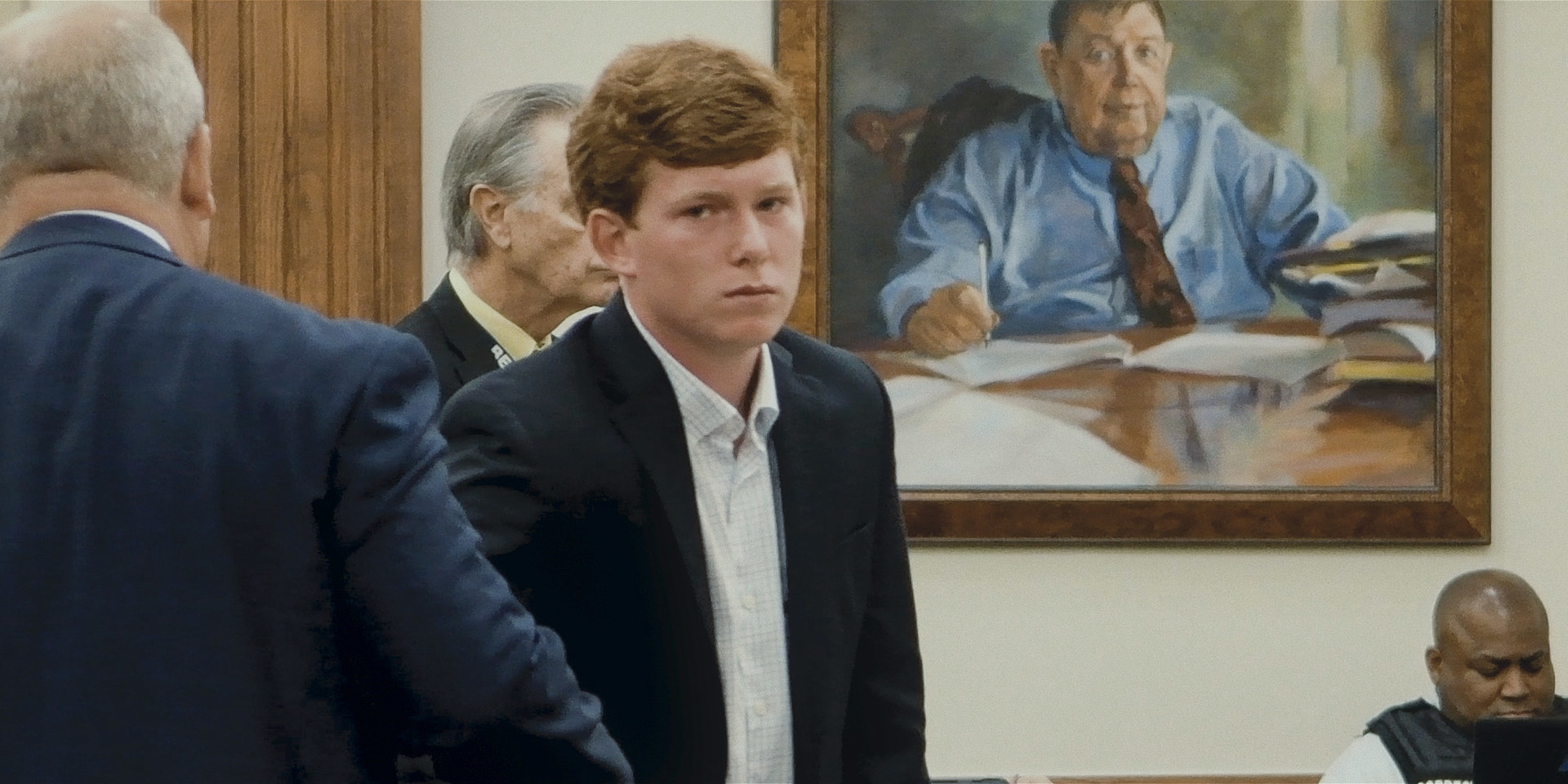
In June 2021, a gruesome scene thrust a prominent South Carolina family into the national media glare. The murders of Paul and Maggie Murdaugh, the youngest son and wife of Alex Murdaugh, an influential Hampton County attorney, seemed like a complete mystery.
Both had been shot multiple times right outside a family estate and left by the dog kennels, as Alex Murdaugh’s frantic 911 call explained. And for the media, it was the perfect true crime scenario to explore: a rich family meeting a violent end with no obvious motive.
But soon more details came out, giving the case a tinge of Southern gothic. Local news outlets emphasized the family’s history of power and cover-ups. Paul had been under investigation for the death of Mallory Beach, his friend’s girlfriend, in a boating accident in 2019. Might his death have been someone’s revenge?
A podcast devoted to the incident reported on some of the rumors that had long circulated about the family. In 2018, the family housekeeper, Gloria Satterfield, died after a supposed fall in the family home, in unclear circumstances. A local gay teenager, Stephen Smith, had been killed in a supposed hit-and-run in 2015, and rumors pointed to one of “the Murdaugh boys,” as one anonymized police tipster put it, referring to Paul and his older brother, Buster. After the 2021 murders, the district attorney reopened the investigations into both cases.
By the time patriarch Alex Murdaugh claimed he had been shot in the fall of 2021, there had been so many twists and turns that a documentary was inevitable.
Now he’s been charged with the murders of his son and wife, and of hiring the man who shot him as part of a life insurance fraud scheme. He’s also been charged with 90 counts of fraud and money laundering connected to insurance payouts managed through his law firm, including Gloria Satterfield’s.
HBO’s Low Country: The Murdaugh Dynasty mostly manages to zoom out and convey the stakes of the sprawling story without just repeating local accounts. The documentary understands its purpose not as an inquiry into the mind of Alex Murdaugh, but about the links between crime, privilege, and power.

Low Country emphasizes that the Murdaugh saga is inseparable from the culture of Hampton County in coastal South Carolina. It’s a sleepy place that, as one local resident puts it, people have no reason to visit or to leave.
Amid the financial stagnancy, the Murdaugh family acquired an enormous amount of influence through their law firm. Starting with the 1920 naming of the first Randolph Murdaugh as solicitor, or what is more commonly in the US called a district attorney, the family basically controlled the justice system. Through generations, they maintained strong connections to law enforcement and state troopers, a fact that contextualizes the abundance of rumors that the family kept years of criminal behavior under wraps.
Paul Murdaugh is described by most of his friends in the documentary as a tantrum-throwing brat. They claim that on the night Beach, his friend Anthony Cook’s girlfriend, died, Paul was drunk and driving the boat — then he plowed into a bridge and she was thrown into the water. Cellphone and police camera footage captured the chaos of the night. Crucially, the friends and their families, even the footage, expose how methodically Alex Murdaugh and his father approached all of them at the hospital after the accident, trying to get them to say another friend, Connor Cook, had been driving. DNA evidence disappeared.
Even years after his girlfriend’s death, Anthony Cook tells the filmmakers that he won’t “talk bad” about Paul, illustrating the weird loyalty the family inspired. But before his murder, Paul had already been charged with boating under the influence, and it was one of the first cracks in the family’s invincibility.
Paradoxically, the documentary is less strong as it crafts a portrait of Alex Murdaugh — in part because there’s still not much known about him, in part because he’s a flat character and has rarely spoken publicly.
There still isn’t full clarity about what transpired the night when Paul and Margaret were killed, or even about Alex’s allegedly staged hit on himself. But he’s admitted to some of the financial crimes, like stealing the insurance payout from Gloria Satterfield’s heirs.
His attorney and some still-loyal friends claim he was addicted to opioids, which caused some of the issues that led to the insurance fraud. And there’s still some mystery about where the millions of dollars he stole went. But it might have been more effective to hear from the many families who lost the settlement money from loved ones’ deaths, to reveal the substantial effects of one man taking advantage of accustomed power and impunity.
The documentary is more probing as it delves into journalistically murky territory, but also the most Reddit-friendly, difficult-to-parse mystery connected to the Murdaughs: Stephen Smith’s death. Smith was openly gay in the conservative town, but, as his cousin puts it, he “put his own crown on his head and he wore it proudly.”
He was found dead on a road near his father’s house, and the highway patrol officer in the documentary says the wounds pointed to a homicide with blunt force to his head. But the local sheriff insisted on calling it a hit-and-run. Smith’s car was nearby and his sister says law enforcement implied that he had been hit as he walked to his father’s house.
In the documentary, a friend says Smith had described starting a relationship with a prominent Hamptonite: “If I say who this is, the whole Hampton County is gonna be shook.”
“If I say who this is, the whole Hampton county is gonna be shook.”
There were rumors that Smith had been killed in a fight with the Murdaugh brothers, and his cousin claims she heard he had been dating Buster Murdaugh, Paul’s shyer older brother.
Smith’s mother, Sandy, explains that she saw Murdaugh family members at the crime scene when she visited after her son’s death. Others in the documentary claim the Murdaughs knew of Stephen’s death even before the Smith family.
Alex’s brother, Randy Murdaugh — also a lawyer — had been doing a workers’ compensation claim for Sandy’s husband and called to ask them for Stephen’s “Facebook and password,” she says. It made no sense to her.
While the investigation into Smith’s death was reopened after the killings of Paul and Margaret Murdaugh, it remains unsolved. But the documentary’s treatment of this incident carries an emotional charge thanks to the family’s perspective, and its treatment of the Alex Murdaugh story doesn’t compare.
Perhaps the most resonant image from the documentary is Sandy Smith demanding an open casket funeral to show the county the extent of her son’s injuries. Stephen’s father, Joel, told friends, “The Murdaughs killed my son.” Three months after his son’s death, he died from a heart attack.
Alex Murdaugh now awaits trial on the murder charges. In one recorded prison conversation between him and his remaining son, Buster, we get the most direct insight into the family’s relationship. They talk about Buster having to squeeze into the tiny seats of Spirit Airlines for a recent trip, and about whether he should go hunting at their old estate. Buster mentions that he was recognized when he was out gambling. They sound so empty and detached given the circumstances.
It makes one wonder about the family dynamics as they face national scrutiny. Yet as North Carolina novelist Mark Ethridge puts it in the documentary, the Murdaugh saga is less a story of one family and more about “institutional evil manifesting itself.”
That’s the film’s perspective too. The flatness of those exchanges between father and son is a reminder of the banality behind corruption. And maybe that’s less a limitation of Low Country as a film than a comment on the mundanity at the heart of true crime spectacle. ●
